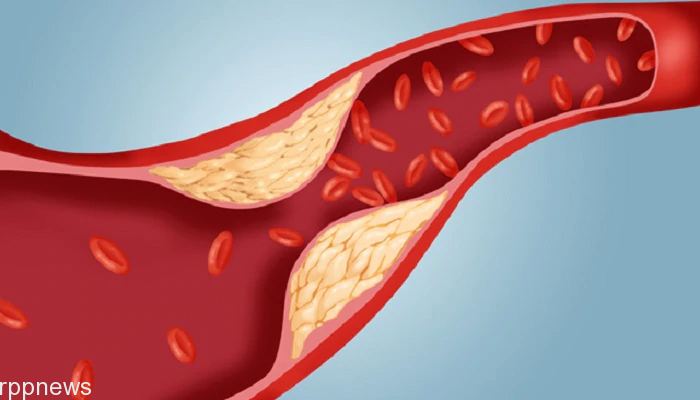
Although cholesterol is essential for the human body, it is very worrying that it is excessive. Cholesterol is a problem in fats when the intake of cholesterol in the diet is excessive. Again, even if you consume a large amount of sugar, it is converted into fat in the body. Cholesterol is a fatty, oily steroid found in cell membranes and the bloodstream of all animals.
According to a recent study by scientists, many citizens of this country were suffering from stomach problems at one time. But now, the number of heart patients is increasing by leaps and bounds. In many cases, it is seen that many people are suffering from heart disease due to obstruction in the arteries of the heart muscle. And one of the reasons for this barrier is the increase in cholesterol levels in the blood. Scientists say the increase is due to a change in eating habits.
One or two things you need to know about fat and cholesterol first. Fats can provide much more energy to the body than essential foods like protein or sugar. In the absence of food, fats or fats play a major role in providing energy to the body. This fat again acts as a solvent for A, D, E, K vitamins. It accumulates in different parts of the human body and protects them from injury. Fat acts to regulate body temperature, build cell membranes, transmit intracellular and extracellular news, and act as co-enzymes. Cholesterol is a special class of this fat.
It plays an important role in synthesizing vitamin D, bile, acids, brass salts, steroids and sex hormones, and cell membrane components. However, there is no need to take it as a food ingredient, many doctors say. This is because every cell in the human body, especially the liver (75 percent), skin, adrenal and intestinal cells, is said to have enough cholesterol from other fats.
Cholesterol is a problem in fats when the intake of cholesterol in the diet is excessive. Again, even if you consume a large amount of sugar, it is converted into fat in the body. The body cells then make more cholesterol. Although digested with some feces and sebum, many oxidized cholesterol accumulates in the arterial wall, interfering with blood flow. This causes the left ventricular wall of the heart to thicken and reduce blood flow. When cholesterol triglycerides and nuclei accumulate in the arteries that carry blood to the heart muscle, the blood flow stops, and there is a risk of a heart attack. Besides, angina, heart failure and other heart-related diseases are caused due to high cholesterol in the blood. According to doctors, the normal cholesterol level in the blood is less than 200 mg per deciliter.
According to statistics, 262 out of every one lakh people in India die of heart disease. If there is a certain level of cholesterol in the blood (scientists say, this level should be less than 160 mg per deciliter), it is possible to avoid heart disease. Fast foods rich in trans fatty acids, chips, cookies, smoking and alcohol increase LDL cholesterol level in the blood by lowering HDL cholesterol levels.
Physicians and researchers claim that lowering HDL cholesterol levels in the blood and increasing LDL cholesterol level disturbs the normal balance of cholesterol. That increases the risk of illness. For this reason, many people call HDL cholesterol ‘good cholesterol’ and LDL cholesterol ‘harmful cholesterol.’ Scientists claim that this problem is caused by eating foods rich in saturated fatty acids.
Doctors claim that this problem can be avoided by eating single and many unsaturated fatty acids (Mufa and Pufa). Saturated foods include fatty meats, coconut, butter, ghee, cashew nuts, egg yolks, palm oil, etc. It is common for people with heart disease to avoid these foods after surgery. Avoiding these in advance can reduce the risk of heart disease. Foods high in unsaturated fatty acids include bran oil, mustard oil, sunflower oil, fish, fish oil and soybeans. Doctors claim that eating these foods reduces the risk of heart disease.
Also, foods rich in antioxidants and fibre such as grains, fruits regulate the immune response associated with cholesterol metabolism, inflammation and blood clotting. According to a study by the World Health Organization (WHO) and the Food and Agriculture Organization, linoleic and linoleic essential fatty acids in food reduce cholesterol production in certain proportions (4: 1 to 10: 1).
Physicians believe that regular limb movement, exercise, yoga, exercise, brisk walking, etc., can help avoid cholesterol’s harmful effects. To get a healthy mind, a healthy body, on the one hand, just as we have to change our way of life, we also have to change our eating habits.